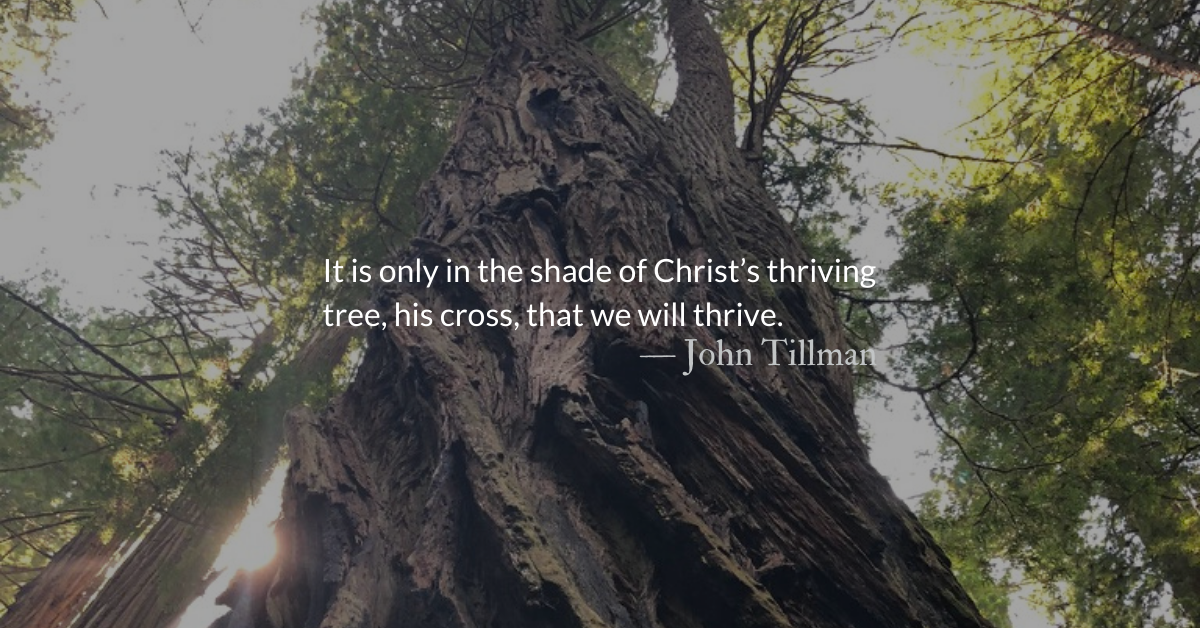Scripture Focus: Ezekiel 17.22-24
22 “ ‘This is what the Sovereign LORD says: I myself will take a shoot from the very top of a cedar and plant it; I will break off a tender sprig from its topmost shoots and plant it on a high and lofty mountain. 23 On the mountain heights of Israel I will plant it; it will produce branches and bear fruit and become a splendid cedar. Birds of every kind will nest in it; they will find shelter in the shade of its branches. 24 All the trees of the forest will know that I the LORD bring down the tall tree and make the low tree grow tall. I dry up the green tree and make the dry tree flourish.
“ ‘I the LORD have spoken, and I will do it.’ ”
Psalm 60.1-4
1 You have rejected us, God, and burst upon us;
you have been angry—now restore us!
2 You have shaken the land and torn it open;
mend its fractures, for it is quaking.
3 You have shown your people desperate times;
you have given us wine that makes us stagger.
4 But for those who fear you, you have raised a banner
to be unfurled against the bow.
Reflection: The Thriving Tree
By John Tillman
Biblical authors don’t always explain their visions and parables. Thankfully, Ezekiel explains his visions of trees and eagles.
Nebuchadnezzar, the first eagle, took king Jehoiachin and others into captivity (2 Kings 24.15) and “planted” Zedekiah under Babylonian control. Pharaoh, the second eagle, is who Zedekiah, the “low vine,” entreats for help rebelling against Nebuchadnezzar. “Will it thrive?,” God asks. (Ezekiel 17.9)
Many kings, humbled and seeking God’s face, received miraculous deliverance from their enemies. This was not one of those times. Zedekiah was the opposite of humble.
Refusing to humble himself under the discipline of God, (2 Chronicles 36.12-13) Zedekiah would not accept a reduction in status. He wanted to be a mighty cedar, not a low vine. He wanted the “good old days” back.
Zedekiah didn’t make his bad decisions alone. A host of religious leaders and yes-men helped. Self-serving false prophets fed Zedekiah’s ego and pride with lies and predictions of great deliverance and salvation.
It doesn’t take too much conjecture to imagine what Zedekiah might have felt and thought. “I’m a descendant of David! God promised to have one of David’s descendants rule forever on this throne. It just can’t be God’s will for me,…I mean…us, to be humiliated like this!”
Don’t we often look at scripture and our experiences in the same way? “This can’t be what God wants for me! I won’t stand for this kind of treatment! I deserve better! God will vindicate me in this fight!”
Zedekiah’s selfish desires for salvation and a return to power would not be answered because God had already set in motion his long-term plan to save and empower his people. Part of God’s plan to save them was to purify their hearts through exile and suffering. Part of God’s plan to save them was to enact a second Exodus, calling the faithful of his people back from captivity once again.
But God’s ultimate plan was in the tree, the king, only he could plant. (Ezekiel 17.22-25, Jeremiah 23.5-6)
Zedekiah, the king planted by Nebuchadnezzar would fail. Even Nebuchadnezzar would fail in spectacular fashion. Jesus, the king planted by God upon Zion, is the tree that will thrive, bringing all the birds to his shade.
Our path to salvation and restoration follows the steps of the suffering, crucified servant, Jesus. It is only in the shade of Christ’s thriving tree, his cross, that we will thrive.
Divine Hours Prayer: The Refrain for the Morning Lessons
Then shall all the trees of the wood shout for joy before the Lord when he comes, when he comes to judge the earth. — 1 Chronicles 16.33
– Divine Hours prayers from The Divine Hours: Prayers for Summertime by Phyllis Tickle
Today’s Readings
Ezekiel 17 (Listen – 4:26)
Psalm 60-61 (Listen – 2:27)
Read more about Praise in the Midst of Trouble :: A Guided Prayer
Our land, our people, our churches, our politics are fractured, God.
We stagger, shaken, fearful, and unsteady.
Read more about Naked Humility, Unexpected Salvation
Isaiah also shows us the power of accepting suffering as a discipline, while at the same time setting our hope on the future.






